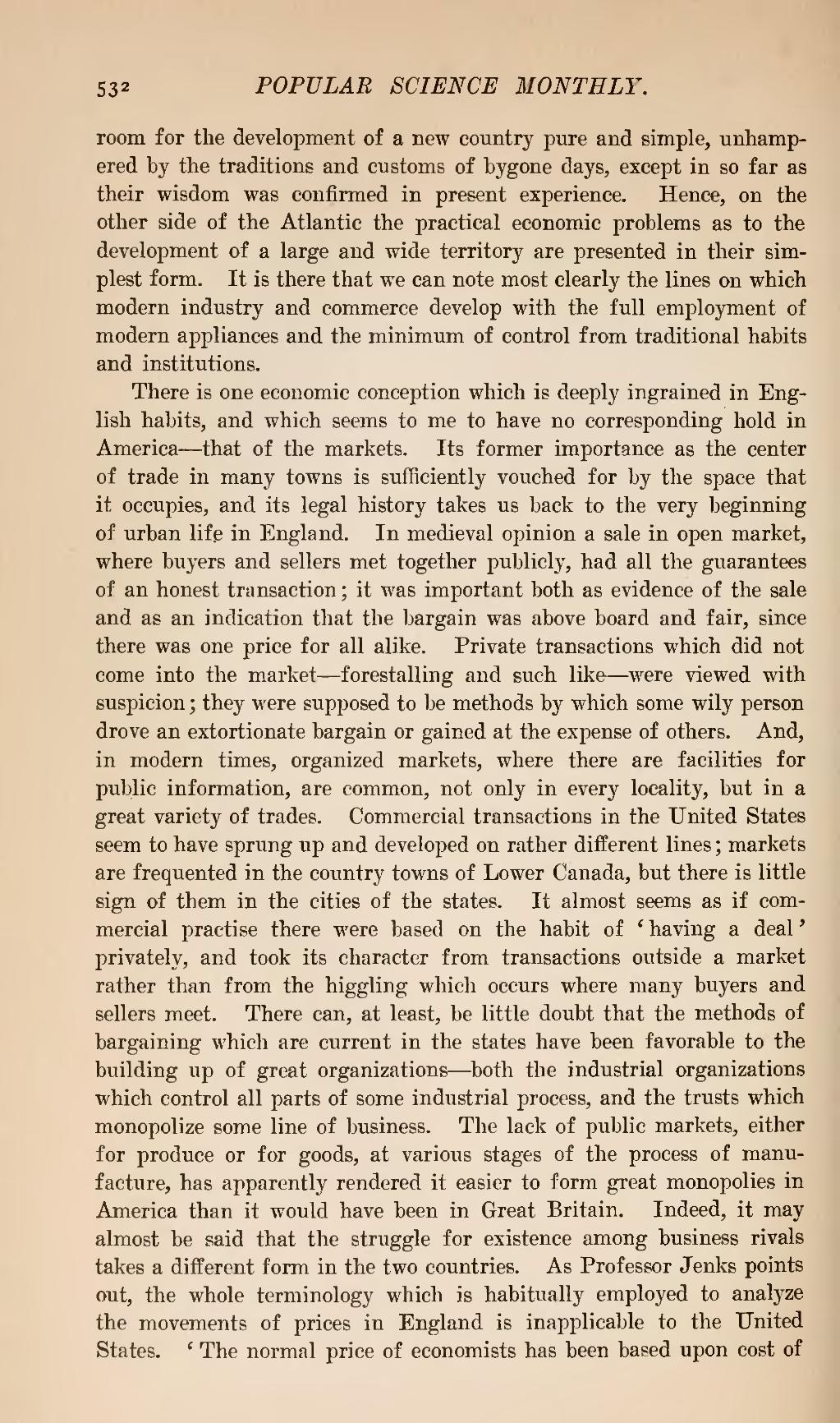room for the development of a new country pure and simple, unhampered by the traditions and customs of bygone days, except in so far as their wisdom was confirmed in present experience. Hence, on the other side of the Atlantic the practical economic problems as to the development of a large and wide territory are presented in their simplest form. It is there that we can note most clearly the lines on which modern industry and commerce develop with the full employment of modern appliances and the minimum of control from traditional habits and institutions.
There is one economic conception which is deeply ingrained in English habits, and which seems to me to have no corresponding hold in America—that of the markets. Its former importance as the center of trade in many towns is sufficiently vouched for by the space that it occupies, and its legal history takes us back to the very beginning of urban life in England. In medieval opinion a sale in open market, where buyers and sellers met together publicly, had all the guarantees of an honest transaction; it was important both as evidence of the sale and as an indication that the bargain was above board and fair, since there was one price for all alike. Private transactions which did not come into the market—forestalling and such like—were viewed with suspicion; they were supposed to be methods by which some wily person drove an extortionate bargain or gained at the expense of others. And, in modern times, organized markets, where there are facilities for public information, are common, not only in every locality, but in a great variety of trades. Commercial transactions in the United States seem to have sprung up and developed on rather different lines; markets are frequented in the country towns of Lower Canada, but there is little sign of them in the cities of the states. It almost seems as if commercial practise there were based on the habit of 'having a deal' privately, and took its character from transactions outside a market rather than from the higgling which occurs where many buyers and sellers meet. There can, at least, be little doubt that the methods of bargaining which are current in the states have been favorable to the building up of great organizations—both the industrial organizations which control all parts of some industrial process, and the trusts which monopolize some line of business. The lack of public markets, either for produce or for goods, at various stages of the process of manufacture, has apparently rendered it easier to form great monopolies in America than it would have been in Great Britain. Indeed, it may almost be said that the struggle for existence among business rivals takes a different form in the two countries. As Professor Jenks points out, the whole terminology which is habitually employed to analyze the movements of prices in England is inapplicable to the United States. 'The normal price of economists has been based upon cost of
